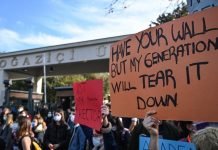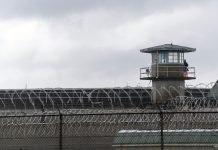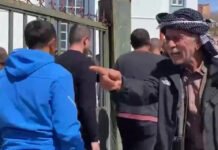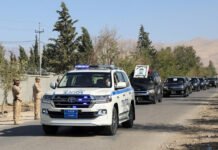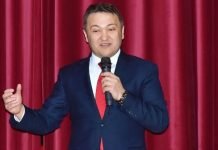Turkey’s main opposition Republican People’s Party (CHP) İstanbul deputy Sezgin Tanrıkulu submitted a parliamentary question to Turkish Prime Minister Binali Yıldırım about the fate of seven people kidnapped in Ankara and the legal procedures concerning them, Cumhuriyet reported on Saturday.
Recalling that one person was kidnapped in Ankara before a coup attempt on July 15, 2016, and six after it in similar ways, Tanrıkulu said: “They have not been heard from. It is said that despite evidence gathered by relatives of kidnapped and disappeared people, security footage and witnesses, no investigations have been launched. The security forces are reluctant to launch an investigation.”
Underlining that all of the kidnapped people were targeted by an investigation into the Gülen movement and suspended from their jobs by government decree, the CHP deputy said, “According to security footage and witness testimony, in all the kidnapping cases black Volkswagen Transporter vans were used, and all seven were followed by people whose faces can be identified in security footage.”
According to Tanrıkulu’s parliamentary question, the kidnapped are as follows:
Sunay Elmas was kidnapped on Jan. 27, 2016 in Ankara in a black Transporter van. Despite the fact that police have CCTV footage of the moment of the abduction and an application made by Elmas’s wife, nothing has been done up to now.
Mustafa Özgür Gültekin, a Competition Authority employee, was kidnapped in a black Transporter van in Ankara’s Beştepe neighborhood at 18:15 on Dec. 21, 2016. His family has compiled all the CCTV footage in the vicinity and says that although the people who kidnapped Gültekin can be identified in the footage, the police have not conducted a real investigation.
Hüseyin Kötüce, an Information and Communication Technologies Authority (BTİK) employee, was reportedly abducted in the parking lot of the Batıkent subway station in Ankara after he got off work in February 2017. His coat and a cake were found in Kötüce’s car, left in the parking lot.
Despite successive requests, family members have so far failed to get police to dust the car for fingerprints, while no CCTV footage has been released.
Turgut Çapan, a former employee of Turgut Özal University, which was shut down by the government over its ties to the Gülen movement, was abducted on March 31.
Mesut Geçer worked at the National Intelligence Organization (MIT) until he was dismissed as part of the government’s post-coup crackdown. His car was stopped and he was reportedly abducted in the Çakırlar quarter in Ankara’s Yenimahalle district, in late March 2017.
Önder Asan, a philosophy teacher at a secondary school that the government shut down over its links to the movement after July 15, mysteriously disappeared in Ankara’s Şentepe neighborhood on April 1, 2017.
His wife Fatma Asan said she found her husband’s car parked near Şentepe with its tires slashed. Fatma also said police and the prosecutor in charge are so reluctant to investigate the case that not even a single CCTV camera in Şentepe was examined for possible recordings of her husband.
Ayhan Oran, a MİT employee since 2005, was dismissed over his alleged ties to the Gülen movement on Aug. 2, 2016. He was last seen leaving the compound he was living in at 12:38 on Nov. 1. The signal on his cell was active until 16:00 the same day. While he had no money in his pocket, he did not even bid his wife farewell before he went out. His car also disappeared.
After listing the kidnapped or disappeared people, Tanrıkulu posed the following questions to Prime Minister Yıldırım:
“Why have efficient investigations not been launched despite the existence of CCTV footage and the testimony of witnesses? The appearance of the same vehicle in all the cases, the professional manner of executing the pursuits and kidnappings, the police reluctance to collect evidence, the rejection of applications [from family members], the abductees all being subjects of an investigation into FETÖ/PDY [a derogatory term coined by the government to refer to members of the Gülen movement] – all give the impression that the abductions were carried out by law enforcement officers or people linked to law enforcement officers. Who carried out the aforementioned pursuits and kidnappings? Have the license plates of the vehicles seen in the kidnappings been identified? Has research been conducted to ascertain in what person or institution’s name the vehicles are registered? If not, why not?”
A new study released by The Stockholm Center for Freedom (SCF) on Thursday has revealed that Turkish government has resumed illegal abductions and enforced disappearances that were believed to be a thing of the past, primarily confined to the dark period of the 1990s, when mainly Kurds were victimized.
The brutal regime of Turkey’s autocratic President Recep Tayyip Erdoğan has now engaged in depriving many victims of their liberty without acknowledging their unofficial detention. This time the prime target is the vulnerable social group Gülen movement against which the Turkish government launched an unprecedented witch-hunt persecution since December 2013.
SCF has so far documented 12 individual cases (before the abduction of Okumuş) of disappearance since 2016 that show a systematic and deliberate campaign of kidnappings by elements within the Turkish security and intelligence services as part of intimidation campaign to silence critical and independent voices and kill the right to dissent.
“In addition to mass torture and ill-treatment of tens of thousands of victims in detentions and prisons, now we started to see enforced disappearances in Turley , sometimes on broad daylight, by security elements linked to the government,” Abdullah Bozkurt, the president of the SCF, has said.
According to SCF study, the motivations behind these abductions and disappearances appear to be twofold. On the one hand the Turkish government keeps up its campaign of intimidation by amplifying fear in the society. That frightens critics and opponents from adopting a critical position against Erdoğan and his associates in the government.
The second motivation on the part of the government is to elicit forced, fabricated and self-incriminating confessions, often written by the police in advance, so that it will help the government case in criminalizing opposition groups, primarily the Gülen movement participants, and facilitate the mass persecution of dissidents.
Turkey survived a controversial coup attempt on July 15, 2016 that killed over 240 people. Immediately after the putsch, the Justice and Development Party (AKP) government along with President Erdoğan pinned the blame on the Gülen movement.
Fethullah Gülen, who inspired the movement, strongly denied having any role in the failed coup and called for an international investigation into it, but President Erdoğan — calling the coup attempt “a gift from God” — and the government initiated a widespread purge aimed at cleansing sympathizers of the movement from within state institutions, dehumanizing its popular figures and putting participants of the Gülen movement in jails.
At least 161,751 people were detained or investigated and 50,334 people were arrested in Turkey in the framework of the Turkish government’s massive post-coup witch hunt campaign targeting alleged members of the Gülen movement since the controversial coup attempt on July 15, 2016, according to statistics reported by state-run Anadolu news agency by basing on information taken from the officials from Turkey’s Justice Minsitry on June 13. (SCF with turkeypurge.com) June 25, 2017



